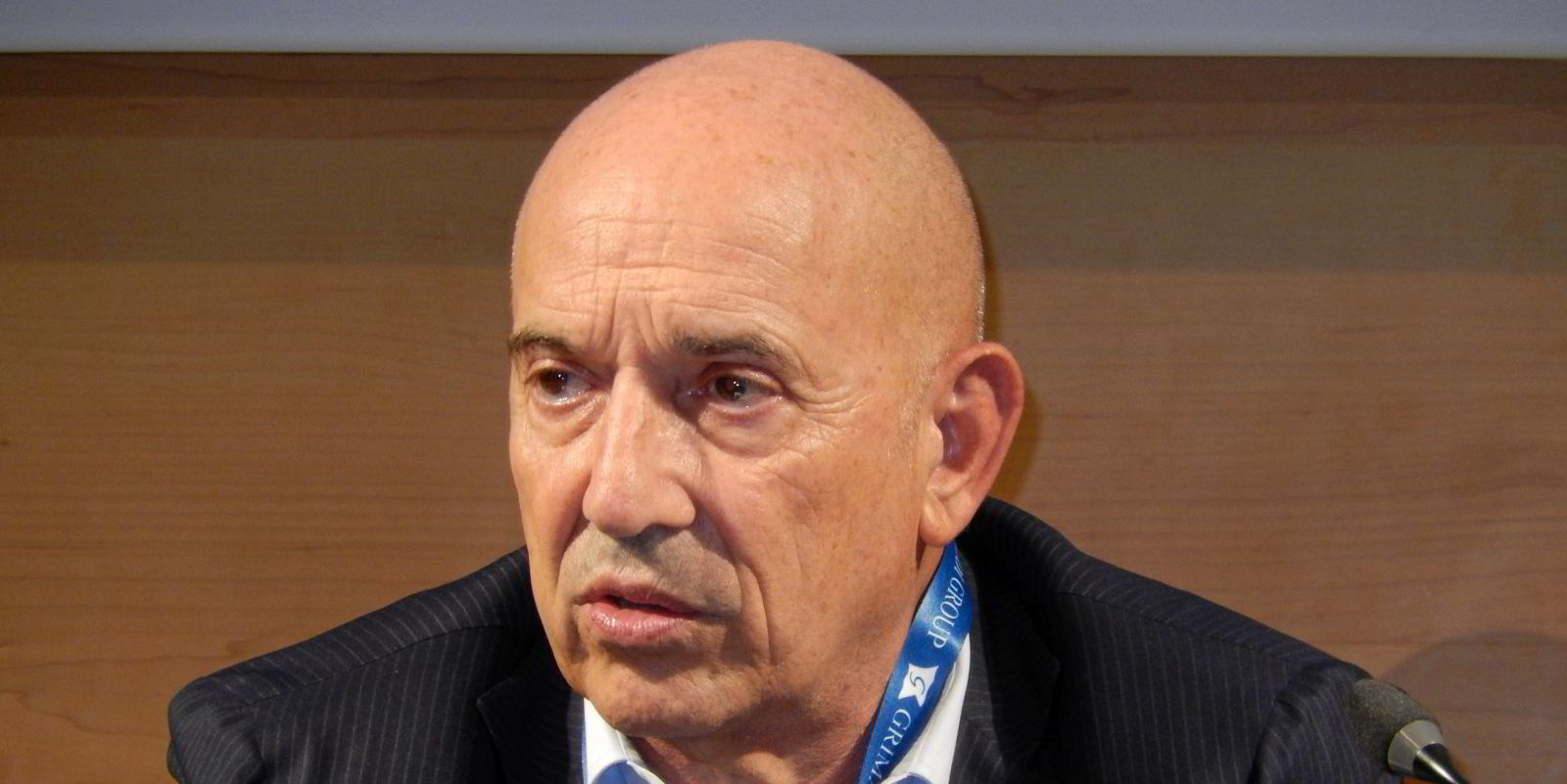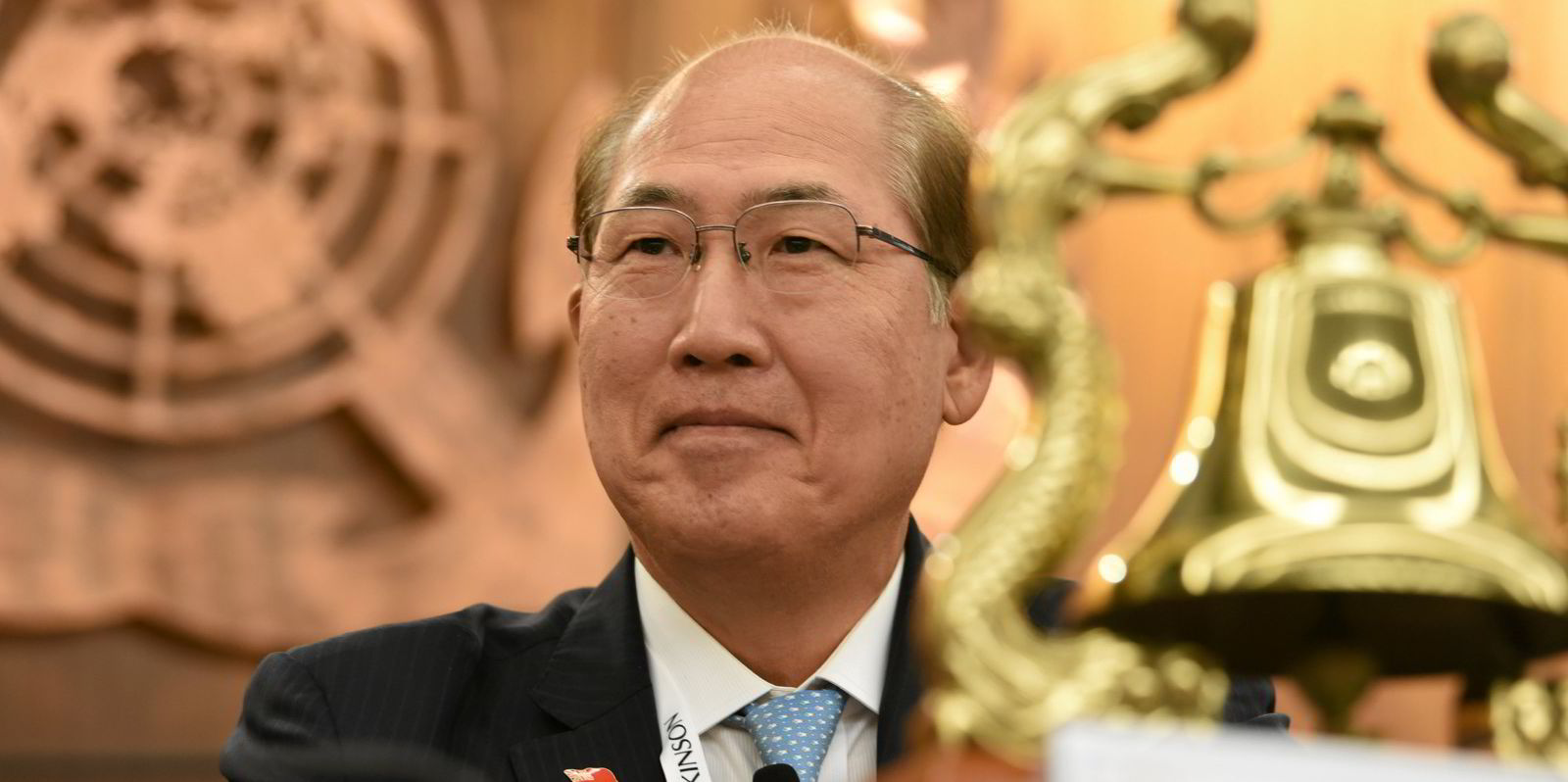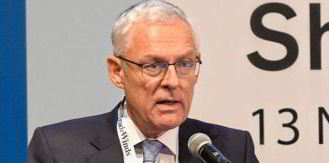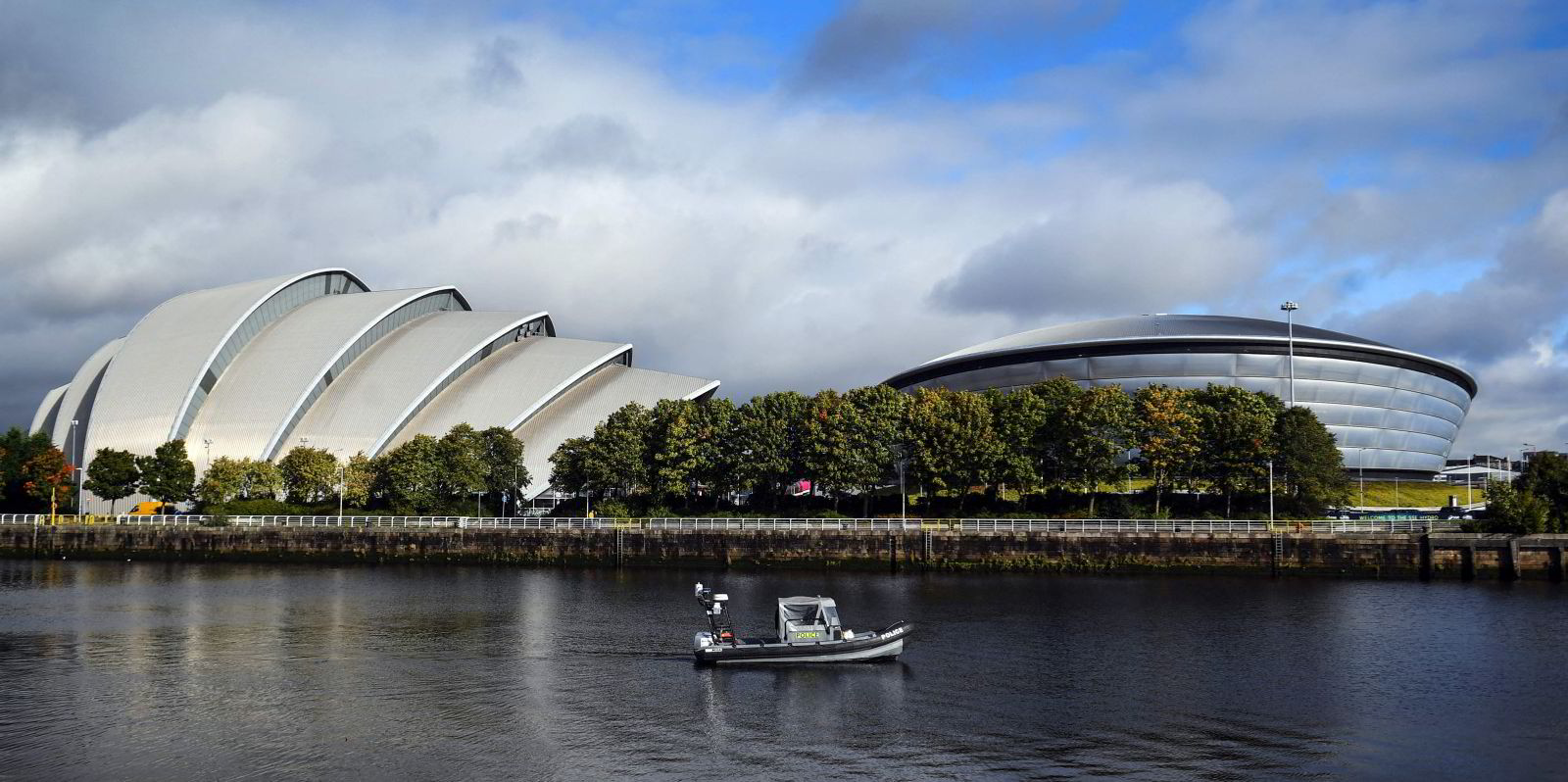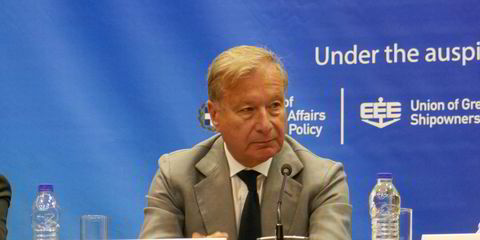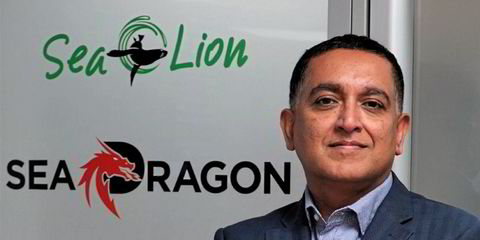Emanuele Grimaldi is positioning himself as one of shipping's most vocal advocates for decarbonisation.
The head of Italy's largest shipowning group deems the International Chamber of Shipping's (ICS) backing for zero-carbon emissions in shipping by 2050 something of a pioneering move.
"I think we have really surprised the world," he told the Euromed conference in Valencia on 8 October. "For the first time in history, an association is moving faster than the regulators."
Grimaldi will take an increasingly vocal role after been named as chair-designate, subject to formal election in June 2022.
His comments come after the ICS endorsed both the taxation of carbon emissions and the creation of a multibillion-dollar fund for research and development (R&D) in the environmental field.
Grimaldi, who is also due to speak at the shipping industry COP26 decarbonisation conference in Glasgow next month, said shipowners are living "in an era when they are called to tackle the environmental issue like never before".
The search for a "new normal" has resulted in "responsible" ship operators pushing the IMO to raise the bar on environmental targets.
"The task is enormous, especially in a very capital-intensive industry such as shipping," he said.
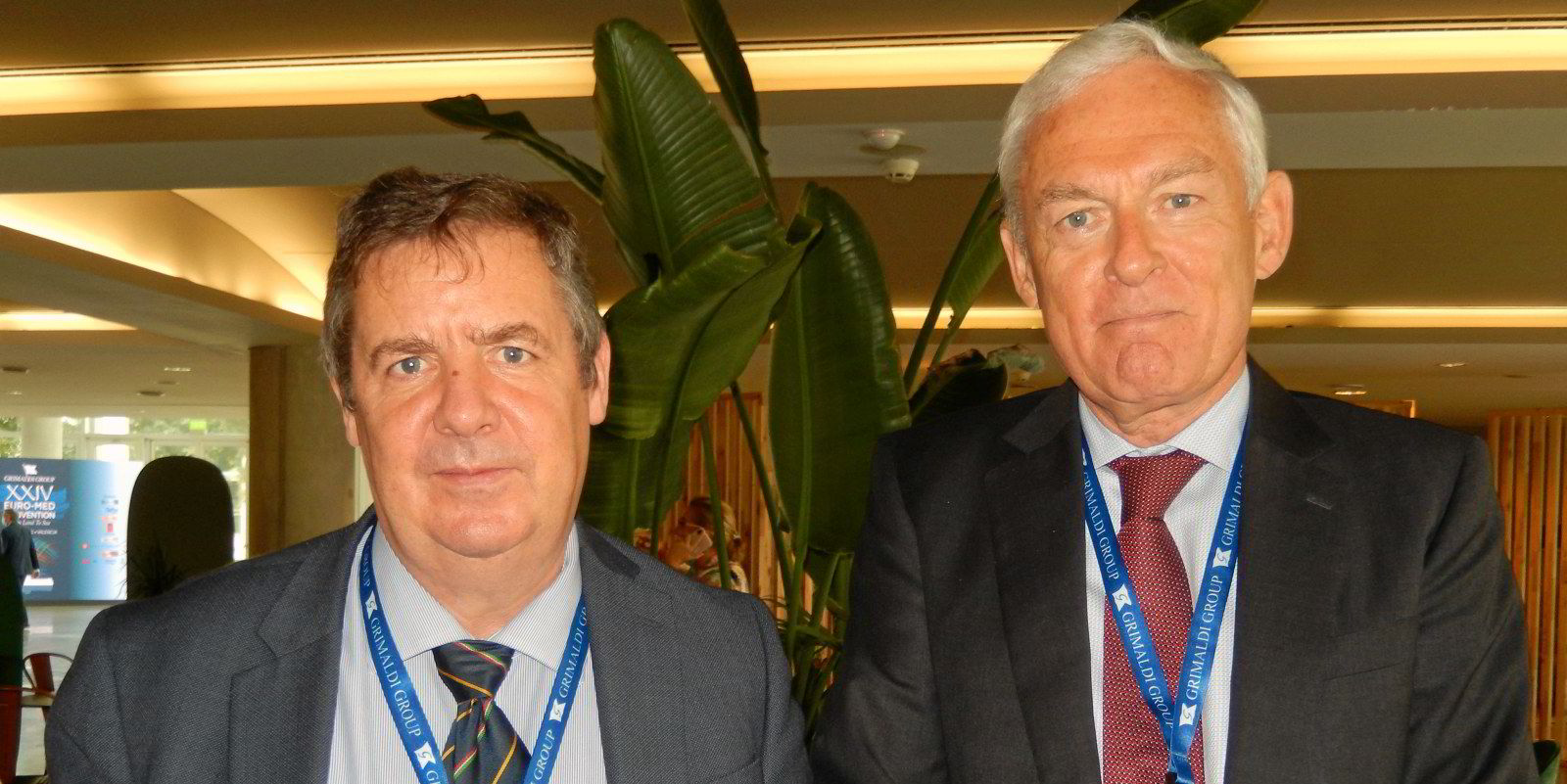
But developing cleaner and less-consuming transportation is also a way for shipowners to cut energy costs.
"So it makes perfect sense also under an economic point of view," he said.
'Dangerous' trading scheme
Grimaldi urges a collaborative approach with stakeholders to push the decarbonisation agenda.
Simple measures such as rescheduling arrival times in port would enable operators to slow steam, save fuel and make money.
He has little time for the European Union's Emissions Trading System (ETS).
Among its faults are the concern that the ETS could lead to reciprocal taxes being demanded in third countries, Grimaldi insists.
He fears that funds raised by the ETS will "be spent neither for research nor for environmental reasons".
He added that the ETS was "dangerous" from a competitive perspective in that it would make shipping less attractive vis-a-vis road transport.
The competitiveness of the ropax fleet is particularly important for Grimaldi Group, which runs a large network of ropax services stretching from Finland to Spain to Greece.
He warns the industry has to be on its guard to avoid a modal shift away from shipping towards road.
"We have to convince our politicians that it makes sense to develop the Motorways of the Sea," Grimaldi said.
Between Italy and Spain, Grimaldi operates a series of vessels on a trade that initially had none, which emit seven times less than older ships.
"If my vessels are severely taxed, then perhaps I can't provide this service and lorries go back on the street," he said.
A better way
Therefore, shipowners need to encourage regulations to be imposed at a global level.
A levy on shipowners of only $2 per tonne on marine fuel would make $500m per year, or $5bn over the decade, which he said is "a lot of money to fight climate change".
The ICS' preference is for a levy over any kind of ETS.
Incumbent ICS chairman Esben Poulsson said: "A bunker levy scheme is unquestionably the most fair way for everyone, and also the most effective way."
He added that the money could be spent on R&D and also go to real environmental projects.
But ICS secretary general Guy Platten said such a policy is only possible if governments come on board.
"Grimaldi could build a fleet of 30 ammonia or hydrogen-powered ships but, unless the ammonia is produced in a sustainable way to power them, how is that going to work?" he asked.
"And also, there is going to be a massive price differential [between carbon-neutral and conventional fuels], so you're going to somehow have to bridge that gap for the early adopters of the fuel.
"It’s a big decision for us to go to net zero. We're saying to political leaders: 'It's now over to you'."
Platten said an agreement in principle for the proposed R&D fund at the IMO Marine Environment Protection Committee from 8 to 12 November would send a signal that the shipping industry is serious.
"Talk is cheap and very easy, but doing it is very hard," Poulsson said.
"But the truth is that if the IMO doesn't move fast enough, then whether it is California, China or the EU, others will do their own thing.
"So there is pressure on the IMO to get on with this."
